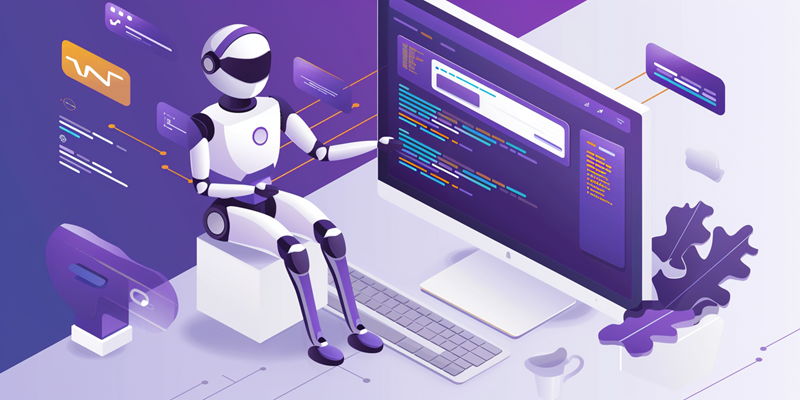In today’s tech-centric world, Python has emerged as a beacon of efficiency for IT automation. This language, cherished for its clear syntax and robust library ecosystem, empowers the digital labor force to channel their ingenuity into more cerebral tasks by automating the routine and monotonous ones. Python serves as a democratizing force in automation, making it accessible for tech professionals around the world.
This programming language stands at the forefront, turning the complex into the manageable with its accessible tools and an engaged community that continuously enriches Python’s capabilities. IT aficionados are finding in Python an ally that simplifies their workload, allowing them to redeploy their cognitive resources towards innovation and strategic initiatives. As we navigate a landscape where time is precious, Python’s role in IT automation is not just beneficial, but vital, pushing productivity and inventive problem-solving to unprecedented levels.
The Python Advantage in Automation
When pondering over IT automation, Python stands out as the programming lingua franca for a multitude of reasons. Renowned for its simplicity and the ease with which even novices can grasp its concepts, Python provides a smooth entry point into the world of automation. Its straightforward syntax, reminiscent of the human language, drastically reduces the learning curve and enables quick script development to address a variety of IT needs. From refining data analysis processes to automating network configurations, Python’s versatility in scripting is unparalleled. Additionally, Python’s strength lies in its vast array of libraries and frameworks that seamlessly integrate with existing systems, making it a preferred choice for IT professionals aiming to boost their efficiency quotient.
Another facet of Python’s prowess in IT automation is its cross-platform nature. Regardless of the operating system—be it Windows, macOS, or various Linux distributions—Python scripts remain consistent and adaptable, ensuring IT professionals can automate tasks in diverse environments. This feature eradicates the need for writing multiple scripts for different platforms, streamlining code management, and saving valuable time. Moreover, Python’s enthusiastic community and wealth of documentation mean that resources for troubleshooting and script enhancement are readily available, further reinforcing Python as an essential tool for any IT automator’s arsenal.
Unleashing Automation with Python Scripts
To harness the power of IT automation with Python, start by pinpointing tasks ripe for automation, like file management or complex database queries. Python’s extensive libraries like ‘os’ for file operations or ‘requests’ and ‘BeautifulSoup’ for web tasks, simplify this transition.
Begin by selecting the right Python libraries for the job, then methodically write scripts. Break down the automation process into small, testable functions to keep the code organized and manageable. Through careful planning and testing, your script will mature into a dependable tool that performs tasks accurately, allowing IT professionals to save time and focus on innovation and problem-solving. By automating mundane tasks, Python not only increases efficiency but also propels IT operations toward a more innovative future.
Final Thoughts
Adopting IT automation through Python is the key to staying abreast with the ever-advancing tech world, optimizing the way we work to new heights of efficiency. But this is not just about scripting—it is an ongoing process of continuous enhancement, adaptability, and creativity. Python serves as a powerful medium in this journey, transforming the landscape of IT efficiency. As we leverage these tools, our approach to technological challenges becomes more sophisticated, enabling us to streamline complex tasks and increase our capacity for innovation. The commitment to IT automation with Python is a commitment to progress—ushering in a future where our potential to manage and manipulate our digital environment is boundless. Hence, as we embark on this transformative path, the promise of automation with Python is clear: a smarter, more efficient way forward in the information technology sector.

